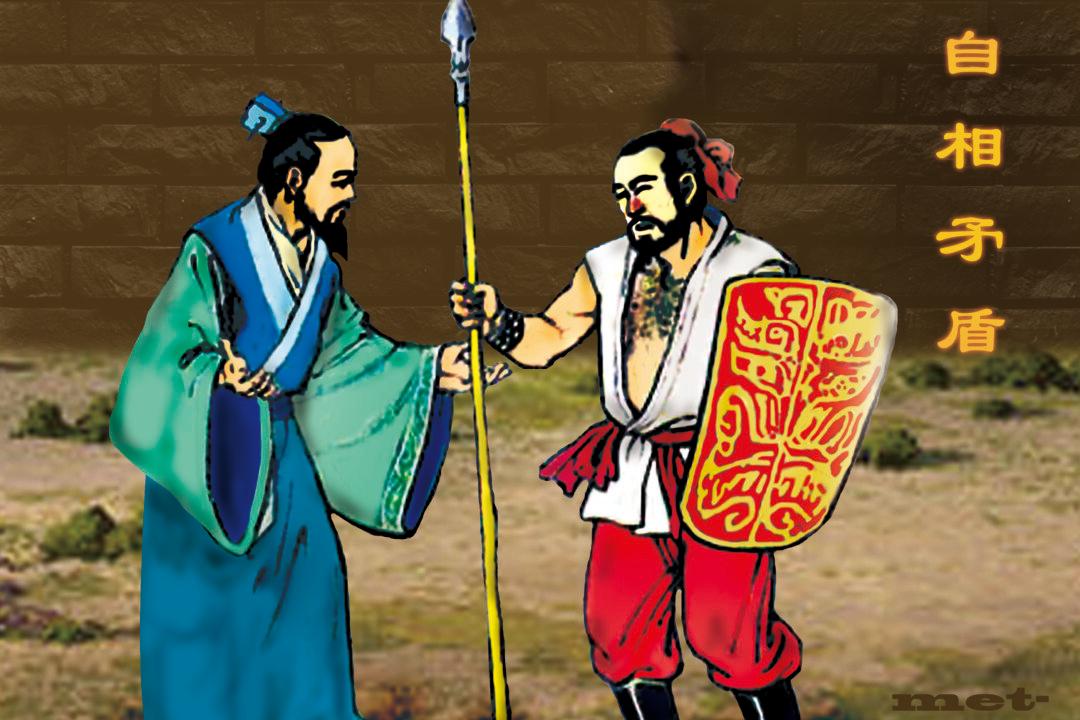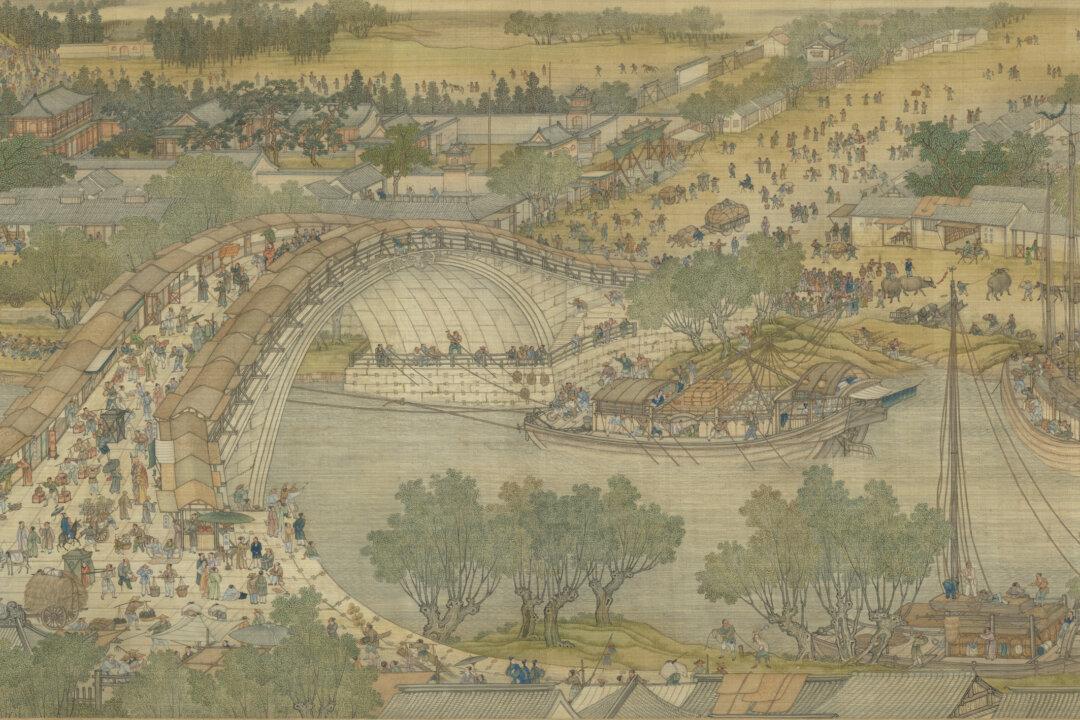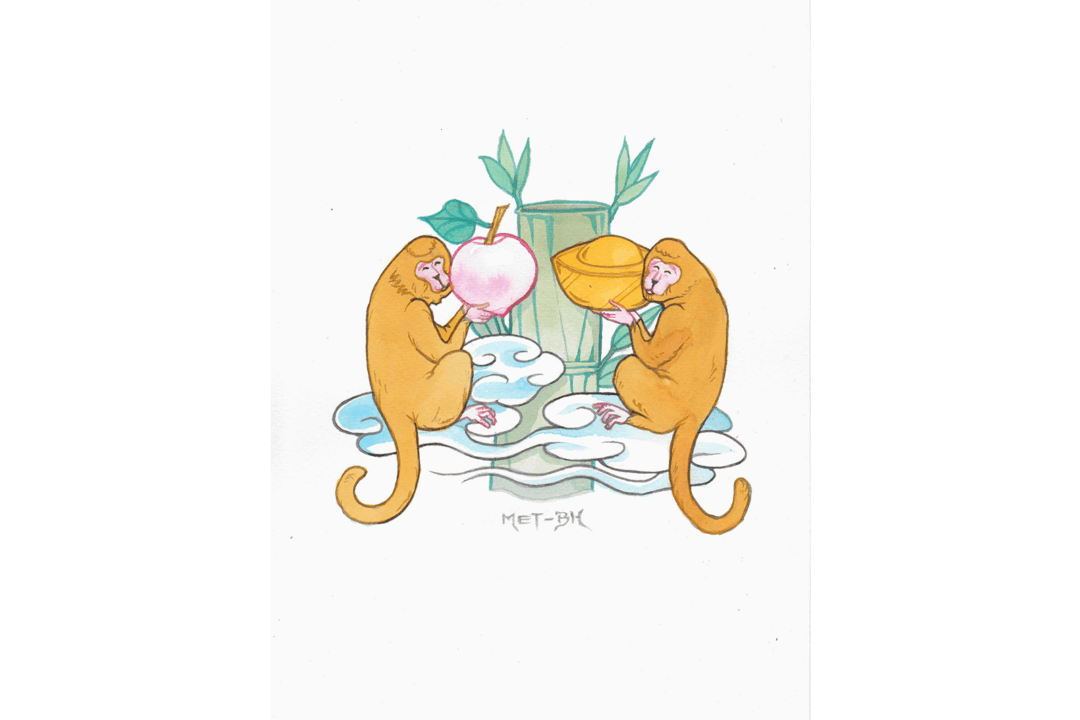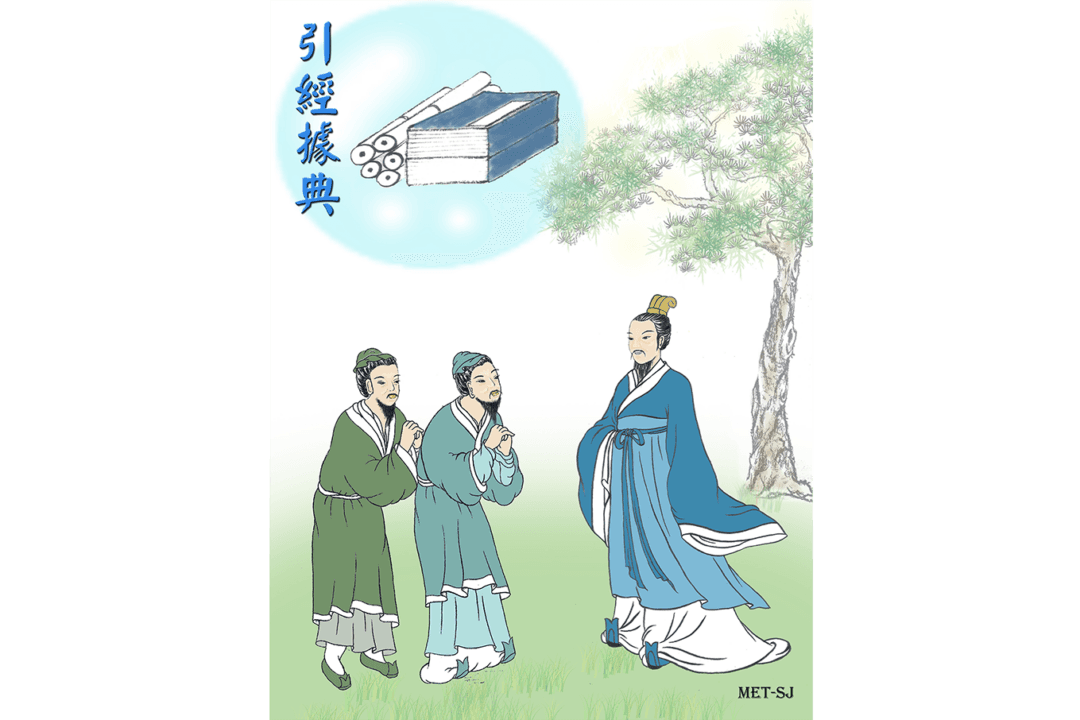During the Warring States period (475–221 B.C.), there was a weapons merchant in the state of Chu who specialized in selling spears and shields.
One day, the merchant went into the street to sell his weapons. He found a place where there were many people and placed his wares on the ground.
First, he held up a shield and shouted loudly to the onlookers: “Hello, everyone, come and take a look at this world-famous shield! Nothing can match its durability. Even the most razor-sharp spear in the world cannot pierce through it.”
A large crowd gathered around him to see the unmatchable shield.
Then, he held up a spear and advertised: “Hello, everyone, come and take a look at my spear. Nothing can match its sharpness, as it is the sharpest spear under Heaven. It can pierce through the most durable shield in the world.”
Hearing this, people in the crowd started laughing. One of them asked the merchant: “According to what you have just said, nothing can match your spear’s sharpness as it can pierce through the strongest shield in the world. And your shield, it is the world’s strongest and it can stop any spear. What if you try your own spear against your own shield?”
The merchant was speechless. He could not come up with a single reply. Embarrassed, he hurriedly gathered up his spears and shields and left.
The idiom 自相矛盾 (zì xiāng máo dùn), which literally means to use one’s spear against one’s shield, evolved from this story. It was included in the book Han Fei Zi written by Han Fei (ca. 280–233 B.C.) who was one of the early legalist philosophers in China.
The general meaning of the idiom is to contradict oneself. Nowadays, people use the idiom to describe speech or actions that are mutually opposed to each other from the beginning and thereby claim or would result in something impossible.
An English equivalent would be a phrase that suggests a contradiction like “a wealthy pauper” or “an honest thief.”




